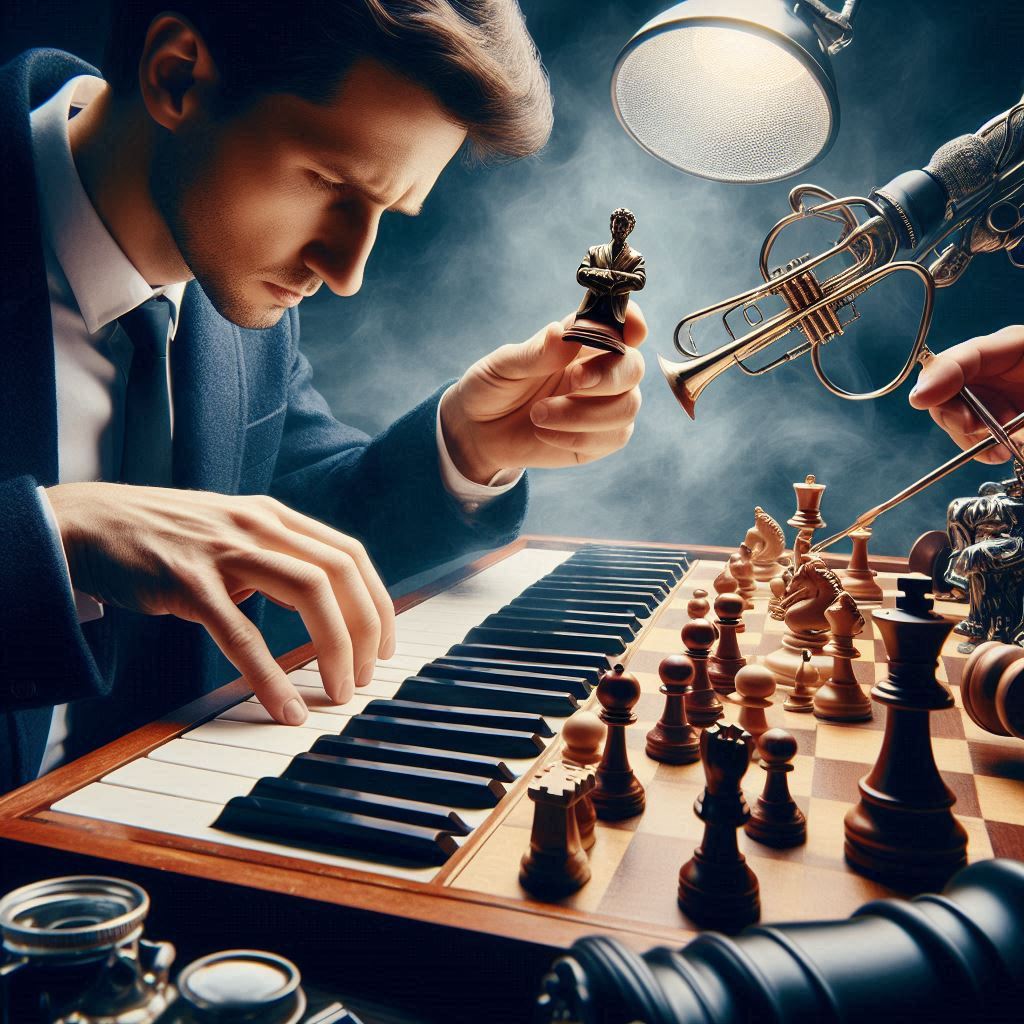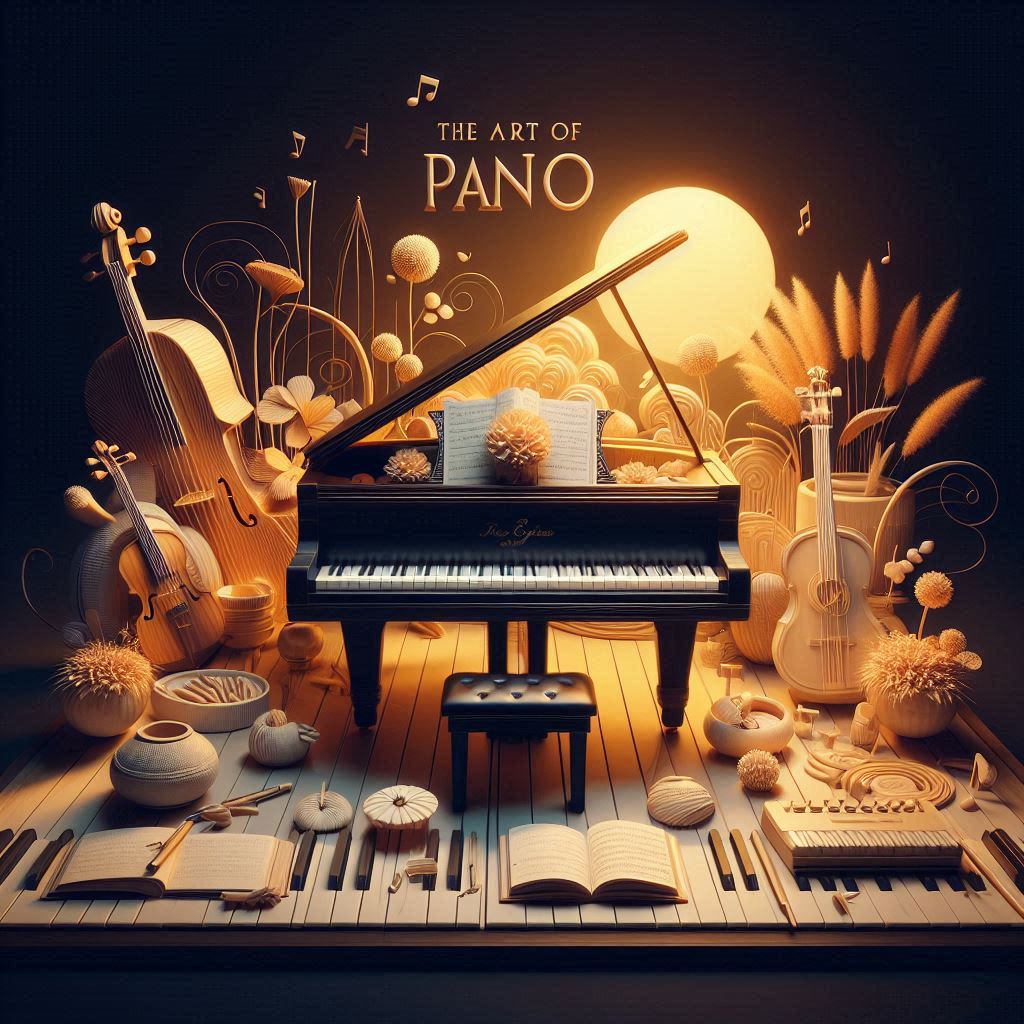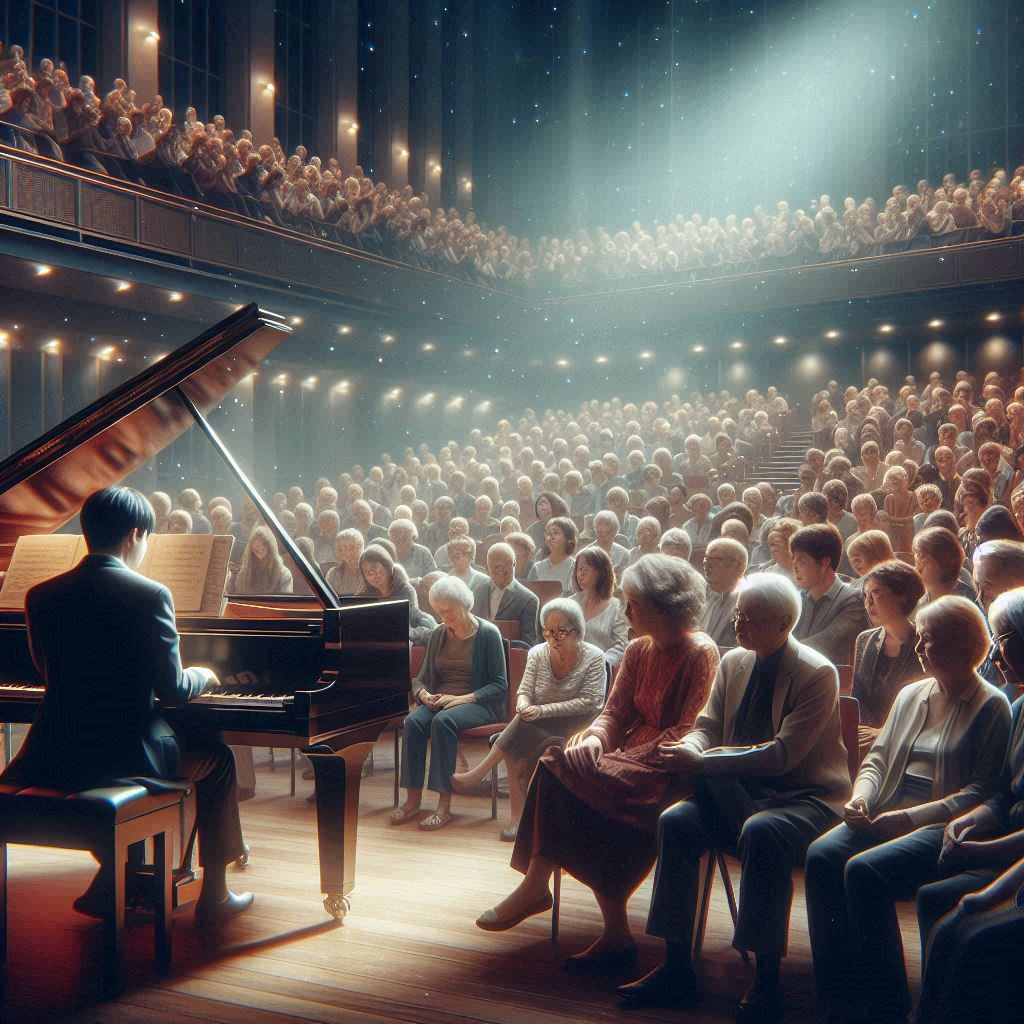Introduction
While playing the piano and chess might seem like vastly different activities, they share common cognitive and emotional benefits that can enhance each other. Engaging in both pursuits can improve your mental agility, strategic thinking, and emotional resilience. This blog explores how playing the piano can improve your chess skills, highlighting the ways in which musical practice translates to better chess performance.
1. Enhancing Cognitive Abilities
Improving Memory
Both piano playing and chess require strong memory skills. Memorizing musical pieces and chess strategies involves similar cognitive processes, which can strengthen your overall memory.
Example:
- Learning and recalling complex piano compositions can improve your ability to remember chess openings and endgames.
Boosting Problem-Solving Skills
Playing the piano involves interpreting music, timing, and coordination, which enhances problem-solving skills. These skills are directly applicable to chess, where you need to analyze positions and anticipate your opponent’s moves.
Example:
- Practicing challenging piano pieces helps you develop the ability to break down complex problems and find solutions, similar to solving difficult chess puzzles.
Enhancing Concentration
Piano practice requires sustained focus and attention to detail. This heightened concentration can improve your ability to stay focused during long and intense chess games.
Example:
- The discipline of focusing on intricate musical passages can help you maintain concentration during critical moments in a chess match.
2. Developing Strategic Thinking
Pattern Recognition
Both piano playing and chess involve recognizing patterns. Musicians recognize musical patterns and structures, while chess players identify patterns in board positions and tactical motifs.
Example:
- Recognizing recurring themes in music can translate to better recognition of tactical opportunities and threats in chess.
Planning and Foresight
Playing the piano requires planning ahead, especially when preparing for upcoming transitions and difficult sections. This skill is crucial in chess, where strategic planning and foresight determine success.
Example:
- Planning finger movements and anticipating musical transitions can help you develop the ability to think several moves ahead in chess.
Adaptability and Flexibility
Musicians often need to adapt their playing based on the dynamics of a performance, much like chess players must adapt their strategies based on their opponent’s moves.
Example:
- The ability to adjust tempo and dynamics in piano performance can enhance your ability to adapt your chess strategy in response to unexpected moves.
3. Enhancing Emotional Resilience
Managing Performance Anxiety
Both piano performances and chess matches can induce anxiety. Learning to manage performance anxiety through musical practice can help you stay calm and composed during chess tournaments.
Example:
- Performing in front of an audience builds confidence and helps you manage nervousness, which is beneficial when competing in chess.
Building Patience and Persistence
Mastering the piano requires patience and persistence, qualities that are equally important in chess. Overcoming musical challenges teaches perseverance and resilience.
Example:
- Persisting through difficult piano pieces can reinforce the patience needed to endure long chess games and recover from setbacks.
Emotional Expression and Control
Playing music allows for emotional expression and can serve as an outlet for stress. This emotional regulation can improve your focus and decision-making in chess.
Example:
- Using music to express and manage emotions can help you maintain a clear mind and make better decisions during high-stakes chess matches.
4. Practical Exercises to Combine Piano and Chess Practice
Mindfulness and Focus Drills
Incorporate mindfulness exercises into both your piano and chess practice to enhance concentration and mental clarity.
Exercise:
- Spend a few minutes each day practicing deep breathing and mindfulness before your piano and chess sessions.
Pattern Recognition Games
Use pattern recognition exercises to improve your skills in both areas. Practice identifying musical patterns and solve chess puzzles that focus on recognizing tactical motifs.
Exercise:
- Spend time each day identifying patterns in your piano music and solving chess puzzles that emphasize pattern recognition.
Strategic Planning Practice
Dedicate time to strategic planning exercises. For piano, plan your practice sessions and anticipate challenging sections. For chess, plan your moves and analyze different scenarios.
Exercise:
- Set specific goals for your piano practice sessions and create detailed plans for chess games, including potential moves and counter-strategies.
FAQs
How can playing the piano improve my concentration in chess?
Playing the piano requires sustained focus and attention to detail, which can enhance your ability to concentrate during long and intense chess games.
Can learning music theory help with chess strategy?
Yes, learning music theory involves understanding complex structures and patterns, which can translate to improved strategic thinking and pattern recognition in chess.
How does managing performance anxiety in piano help with chess tournaments?
Managing performance anxiety through piano practice builds confidence and helps you stay calm under pressure, which is beneficial during competitive chess tournaments.
What specific exercises can I do to improve both my piano and chess skills?
Incorporate mindfulness and focus drills, pattern recognition games, and strategic planning exercises into your practice routine to enhance both your piano and chess skills.
Can playing the piano really enhance my problem-solving abilities in chess?
Yes, the problem-solving skills developed through interpreting music and coordinating timing and movements can enhance your ability to analyze chess positions and find solutions.
How do emotional resilience and control from piano practice benefit my chess performance?
Emotional resilience and control help you manage stress and maintain focus, leading to better decision-making and performance during high-stakes chess matches.
Conclusion
Playing the piano and engaging in chess may seem like disparate activities, but they share many cognitive, emotional, and strategic benefits. By combining musical practice with chess, you can enhance your concentration, problem-solving skills, strategic thinking, and emotional resilience. Embrace the synergy between these two disciplines to become a more proficient and well-rounded individual. Whether you’re a musician looking to improve your chess skills or a chess player seeking new ways to sharpen your mind, the intersection of piano and chess offers a unique path to personal growth and excellence.



